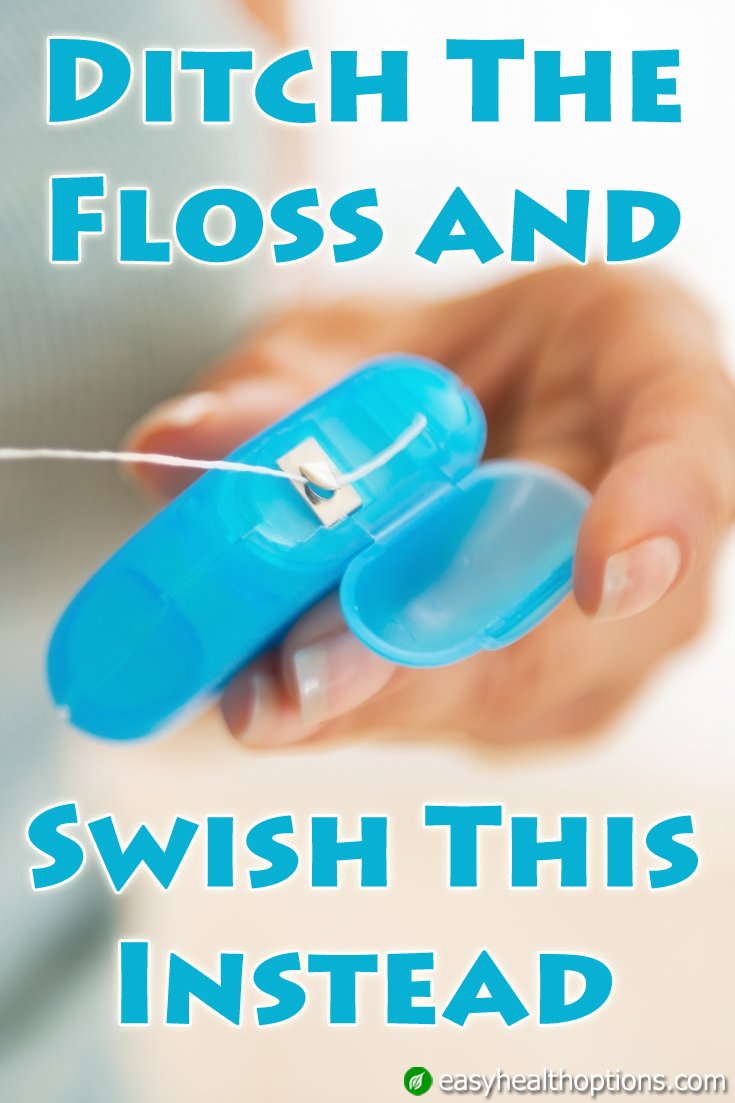Get Easy Health Digest™ in your inbox and don’t miss a thing when you subscribe today. Plus, get the free bonus report, Mother Nature’s Tips, Tricks and Remedies for Cholesterol, Blood Pressure & Blood Sugar as my way of saying welcome to the community!
Flossing: Should you or shouldn’t you?

The health of your mouth and your body are closely connected.
In fact, if you let harmful bacteria brew in your mouth for too long you could set yourself up for some serious health problems… ones that require more than a filling to fix.
Like a dangerous heart infection called endocarditis.
Or even cancer. Research has found a particularly strong connection between squamous cell carcinoma and the bacteria that causes gingivitis.
That’s why you should go out of your way to keep your oral health in great shape. And the key to good oral health is brushing and flossing. Or at least, that’s what you’ve been told your whole life….
And it’s half right. Brushing is proven to reduce bacteria and prevent cavities. But all of those nights spent with floss in between your teeth may have been in vain. Because, it turns out, there’s no evidence that flossing helps your dental health at all.
Of course, that hasn’t stopped the federal government from telling you to do it. The feds have been recommending flossing to the public since 1979. And flossing was always included in the government’s Dietary Guidelines for Americans… until last year when it was suddenly dropped from these guidelines.
The reason why? There’s no scientific evidence to support it. And the government is required by law to have some if they’re going to encourage the general public to do it.
On top of all that, they admitted in a letter to the Associated Press (AP) that, after all these years, the benefits of flossing had never been thoroughly researched.
 Now, there has been some research on flossing. But most of these studies have been “weak” and “unreliable” according to the AP and other scientists. For the most part, this research suggests that brushing and flossing isn’t much more beneficial than just brushing alone.
Now, there has been some research on flossing. But most of these studies have been “weak” and “unreliable” according to the AP and other scientists. For the most part, this research suggests that brushing and flossing isn’t much more beneficial than just brushing alone.
If you haven’t been good about those regular flossing sessions, you may be breathing a sigh of relief right now. But for the rest of us, the concept of not flossing is going to take some getting used to.
Of course, it wouldn’t hurt to keep flossing. Especially if you’re already in the habit of doing it. It does remove annoying food particles from your teeth, and Dr. Michael Cutler believes it’s an important step in getting rid of bad breath. And there’s the disease threat to consider…
And who knows, maybe eventually research will prove it does have measurable benefits after all. But in the meantime, if you want to support your oral health in other ways you can also:
- Start oil pulling
- Avoid sugar and phytic acid-rich foods
- Get enough calcium and magnesium
- Use products that contain xylitol
- Try alcohol-free mouthwash












